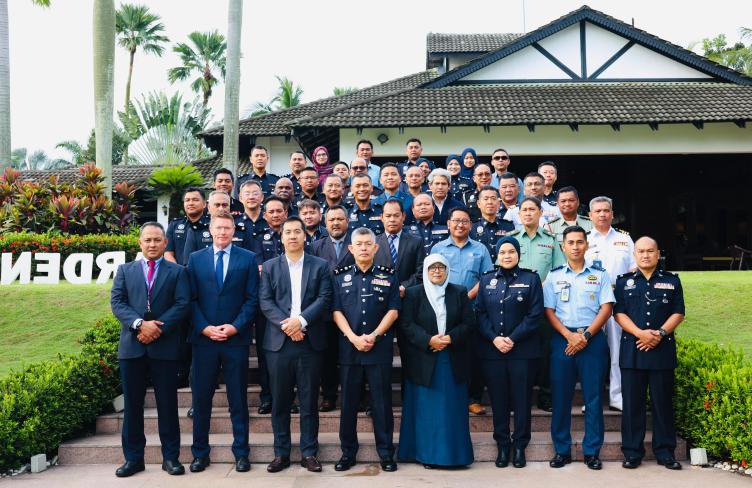
Thailand continues its efforts towards torture prevention with the support of the APT and the Asia Pacific Forum of National Human Rights Institutions (APF) through a series of activities aimed at promoting the Optional Protocol to the Convention Against Torture (OPCAT) and the Méndez Principles.
Over two weeks in December 2024, the APT, APF, and the National Human Rights Commission of Thailand (NHRCT) collabrated to engage with Thai parliamentarians, law enforcement and human rights advocates to strengthen the country’s efforts in safeguarding human rights in detention settings.
The mission began with a national dialogue at the Thai Parliament on 12 December , where over 120 participants from government, civil society, and academia attended and discussed the benefits of OPCAT ratification. A panel of parliamentarians and experts, including Senator Angkhana Neelaphaijit, former member of the United Nations Working Group on Enforced Disappearances, voiced her support for the OPCAT, emphasising its potential to improve transparency in places of deprivation of liberty and help make Thailand a regional human rights leader.
The APT followed this with workshops for executive managers of places of deprivation of liberty and capacity-building activities with the NHRCT to increase their understanding of how to use preventive monitoring to reduce the risk of torture.
“Thailand has made huge progress in laying the groundwork for successful OPCAT ratification by already thinking through their NPM options and building their expertise. If they can take the next step and ratify the treaty, then they are poised to become a real leader in the region and an example for others to follow,” said Ben Buckland, APT Senior Adviser for Oversight.
From these workshops, the APT joined the NHRCT’s National Preventive Mechanism Initiative Unit, the unit within the NHRCT leading on OPCAT campaigning, on visits to Pitsanulok Central Prison and Police Station, providing hands-on support for detention monitoring efforts. These visits underscored the importance of further building NHRCT’s capacity for effective and independent monitoring.
The presentation of the Méndez Principles to the Royal Thai Police Committee on Interrogations on 20 December 2024 marked a critical step in aligning Thai policing practices with international standards that best reduce the risks of torture and ill-treatment. Police trainers emphasised the need for systemic reforms, such as mandatory recording of suspect interviews, citing examples from Norway and New Zealand. The committee agreed to explore these recommendations further in 2025.
Looking ahead, the APT plans to follow up with key stakeholders, including the NHRCT and parliamentarians, to sustain momentum on OPCAT ratification and police reforms. The mission reflects APT’s commitment to supporting Thailand’s journey towards successfully reducing the risks of torture and ill-treatment throughout the country.



